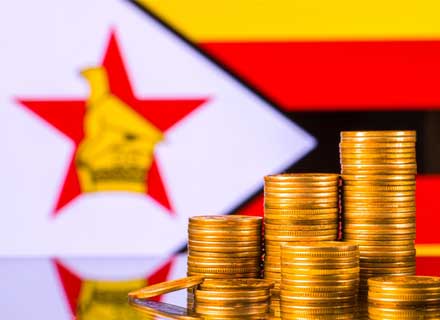Digital gold tokens will be a form of electronic money backed by gold held at the RBZ (Reserve Bank of Zimbabwe).
According to Reserve Bank of Zimbabwe Governor John Mangudya, those who possess small quantities of Zimbabwean dollars would be able to exchange their cash for tokens to store value and hedge against currency fluctuation.
In order to stop the recent significant depreciation of the Zimbabwe dollar on the black market, the Reserve Bank of Zimbabwe is also thinking about putting more Mosi-oa-Tunya gold coins onto the market. The word Mosi-oa-Tunya means, “The Smoke Which Thunders” and refers to Victoria Falls in the local Tonga language.
What Mangudya has observed is that, in addition to being fueled by Zimbabwe’s need to import goods and services, the demand for foreign currency is also seen as a store of wealth.
It means anyone with local money would want to exchange it for international money.
Reserve Bank of Zimbabwe is addressing this demand for a store of value by increasing the number of gold coins in the market so that we manage that demand. In order to make sure that no one and no area is left behind, the Reserve Bank of Zimbabwe will also soon introduce digital gold tokens to make it possible for individuals who have little access to local currency to buy the gold units, Mangudya said.
Officially, the Zimbabwe dollar is valued at ZWL$1000.4, however, on the black market, it is frequently exchanged for Z$1800.
Meanwhile, Zimbabwe’s currency plunged to a record in the unauthorized market after the central bank urged suppliers not to buy foreign exchange with the payment they recently received from the government.
According to Zimpricecheck.com, a website which monitors unofficial and official rates, the Zimbabwean dollar traded between Z$950-Z$1,100 to the US dollar in the parallel market. That’s the lowest on record, and significantly weaker than the official rate of 671 to the US dollar. Businesses are allowed a 10% markup on the authorized price.

